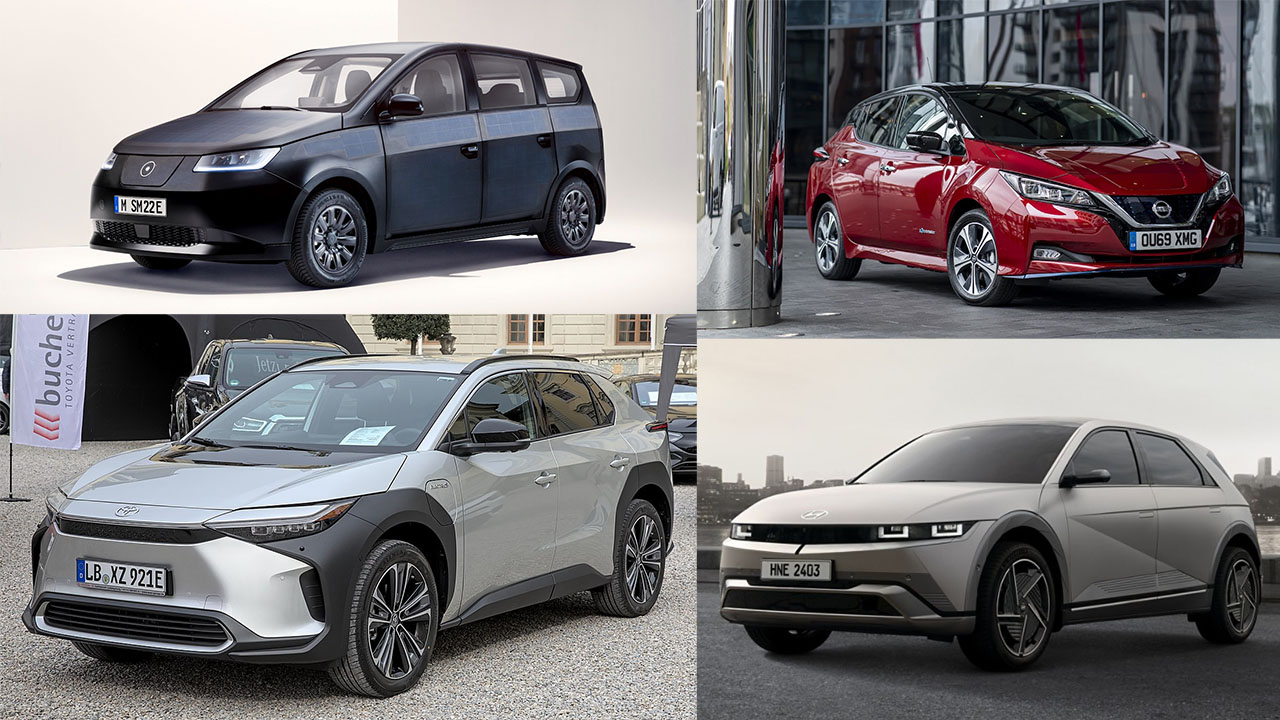In the pursuit of reducing carbon footprints, many individuals have embraced hybrid and electric vehicles.
However, even fully electric vehicles are not entirely zero-emissions when considering the production process and the energy drawn from the grid for charging.
This highlights the value of a genuinely green method for recharging your car’s battery: solar panels.
While not many cars come equipped with solar panels, and some models that do are either unavailable in the U.S. or yet to reach production, these innovations showcase the potential for sustainable transportation.
The following ten vehicles feature solar panels, enabling them to gain range simply by being parked outdoors.
Though solar charging rates are slow, the long-term savings and environmental benefits are significant. Here’s a look at ten cars equipped with solar panels.
1. Hyundai Sonata Hybrid
In 2020, the Hyundai Sonata Hybrid debuted with an optional solar panel roof. This feature allows the car’s battery to charge, providing up to two extra miles of range daily under ideal conditions.
Although this might seem minor, it equates to over 700 miles of solar-powered driving annually. This advancement underscores the Sonata Hybrid’s role as a forward-thinking vehicle integrating sustainable technology.
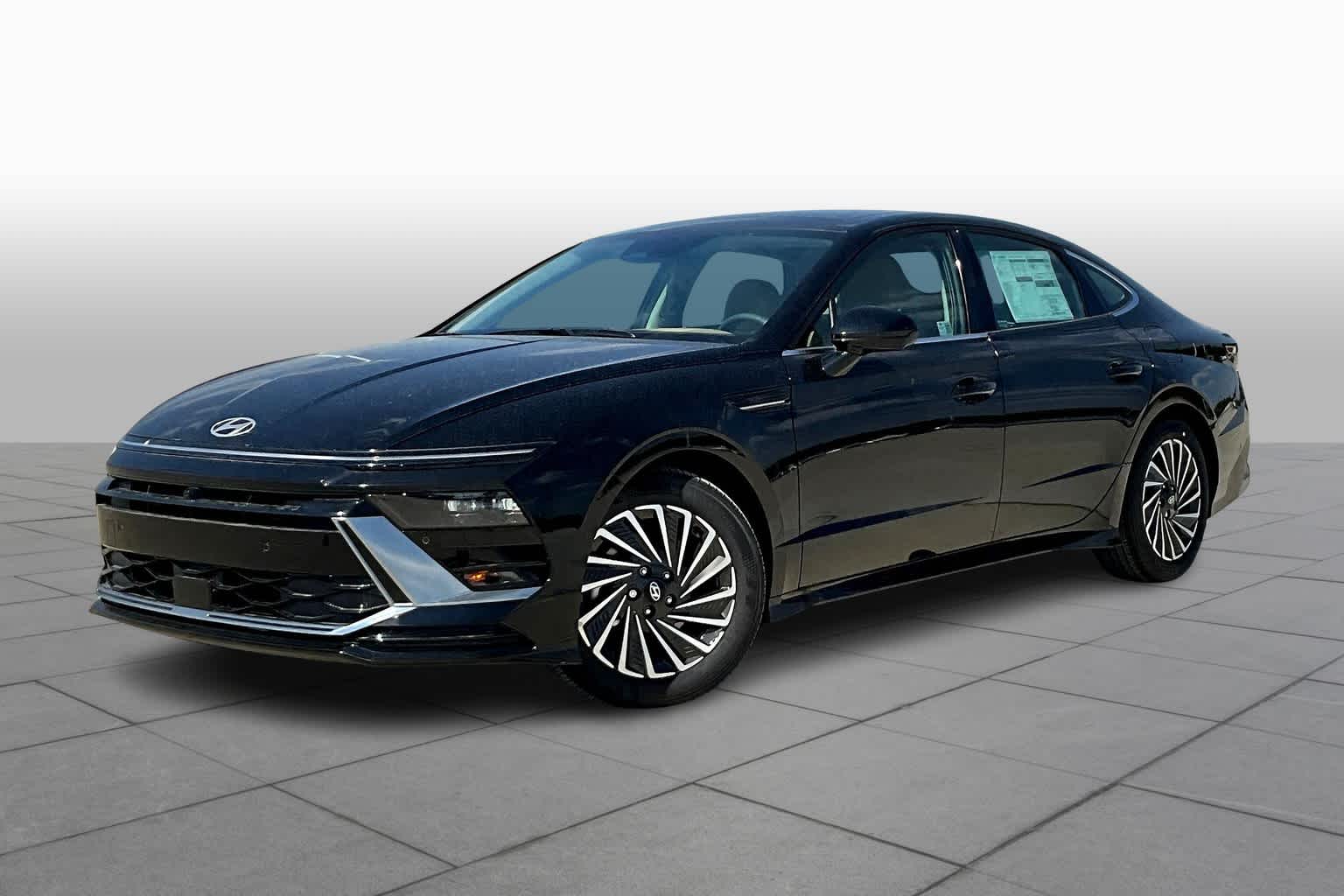
Available in select markets, including the U.S., the solar roof enhances efficiency and reduces reliance on traditional charging methods, representing a meaningful step toward lowering the carbon footprint of personal vehicles.
It’s worth noting that Hyundai discontinued the solar roof option for the Sonata Hybrid starting with the 2023 model year.
2. Toyota Prius Prime
Since its introduction, the Toyota Prius Prime has offered an optional 185W solar roof, adding an environmentally conscious dimension to this iconic hybrid.
The solar panels can generate sufficient power to add up to three miles of range per day, complementing the car’s hybrid system and lessening the need for external charging.
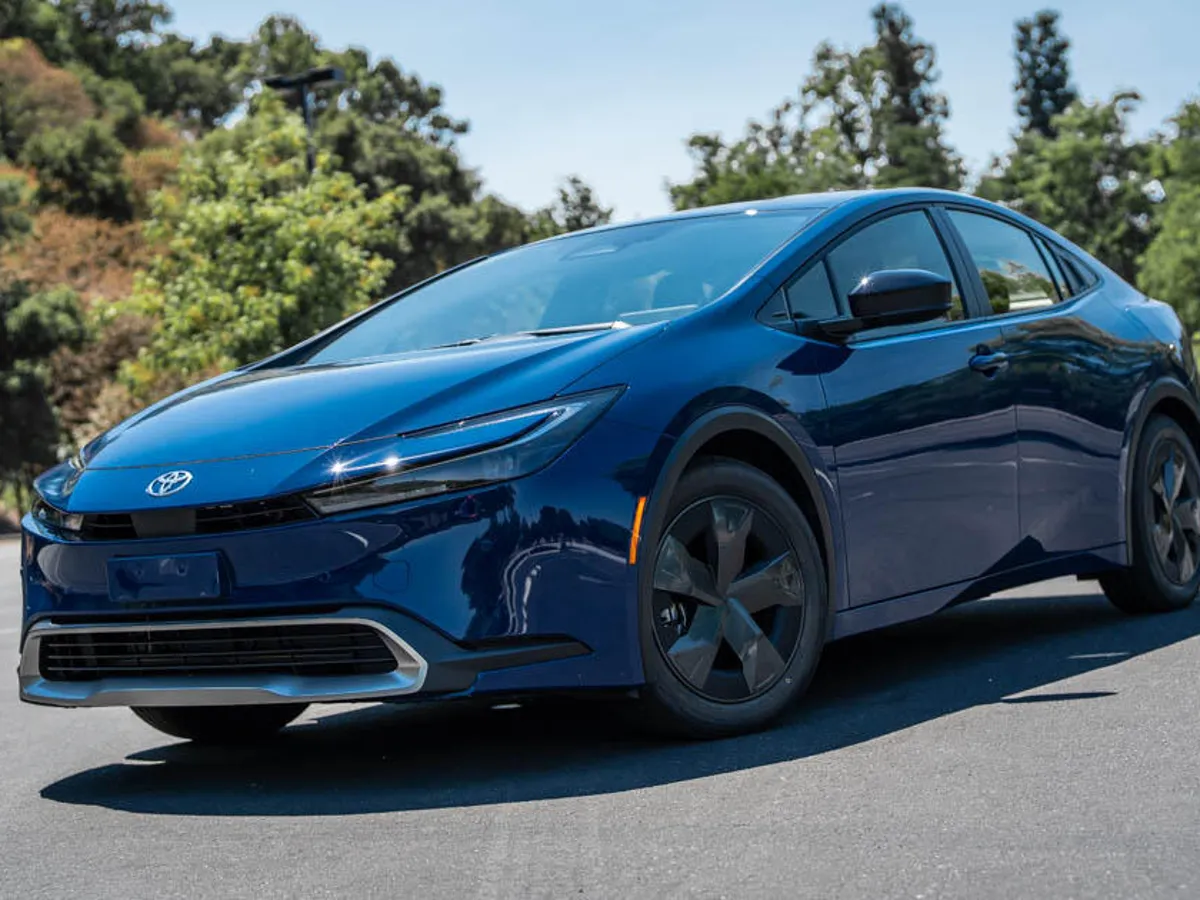
Independent tests have shown that nine hours of sunlight can yield about four miles of range. Additionally, the solar panels can produce enough energy to power some electrical accessories.
Toyota’s solar roof option provides eco-conscious drivers with a practical means to further reduce their carbon footprint, making it a compelling choice for those who wish to combine hybrid efficiency with sustainable innovation.
3. Hyundai Ioniq 5
The Hyundai Ioniq 5 is the first fully electric car on this list to feature a solar roof option in select markets. This innovative EV exemplifies modern sustainable driving, with solar panels that can add approximately three miles of range per day.
Beyond extending range, the solar panels also help maintain the 12V batteries, preventing them from depleting.
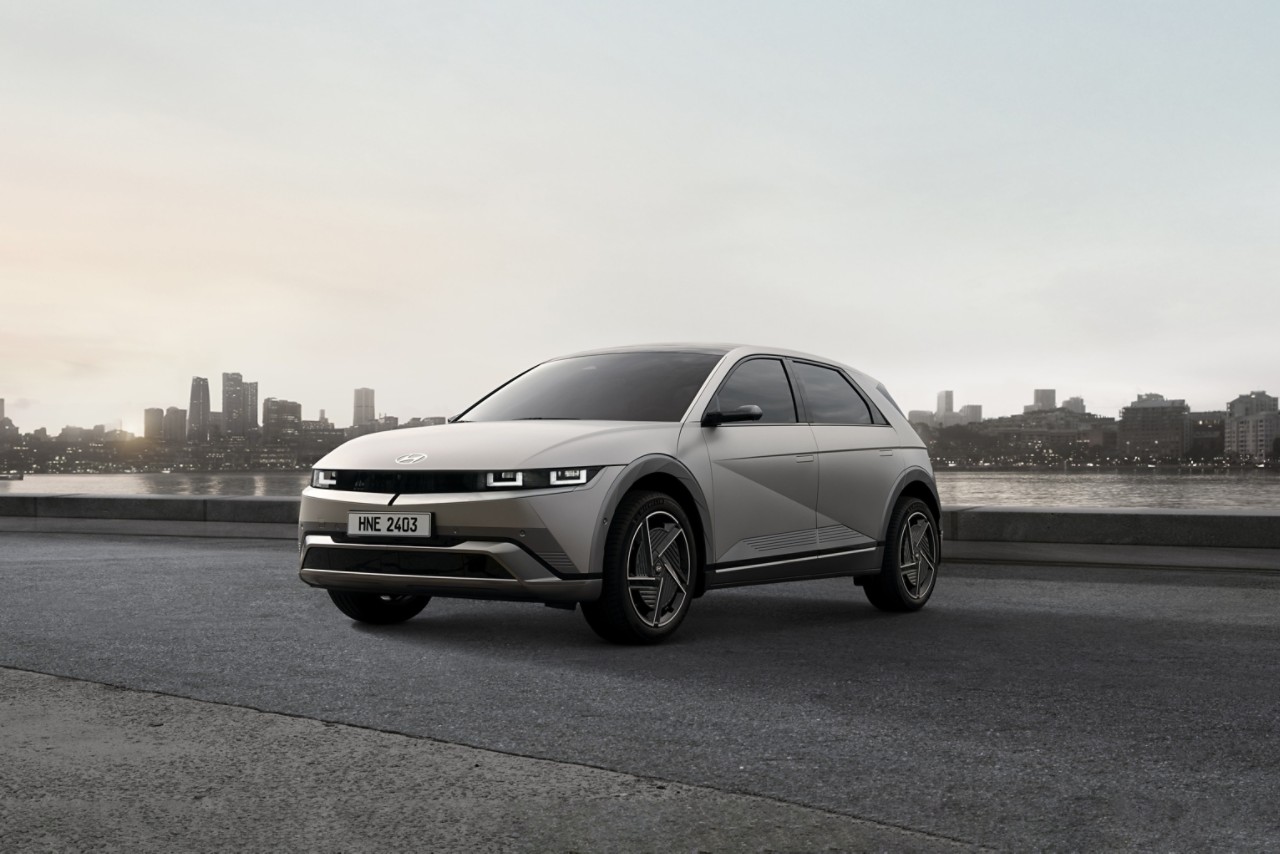
The Ioniq 5’s design is another highlight; its sleek and futuristic aesthetic allows the solar panels to seamlessly integrate with the overall look, creating a visually appealing and functional feature.
By incorporating solar technology, the Ioniq 5 demonstrates Hyundai’s dedication to sustainability and innovation, offering drivers a progressive and clean driving experience.
4. Lightyear 0
Among the most remarkable vehicles on this list, the Lightyear 0 stands out with its solar roof and an array of solar panels covering the entire top of the car’s body.
These panels can extend the vehicle’s range by up to 43 miles per day, thanks to their significantly larger surface area compared to other solar-equipped cars.
This capability minimizes the reliance on external charging, allowing the Lightyear 0 to recharge itself on sunny days with a capacity of up to 1.05 kW.
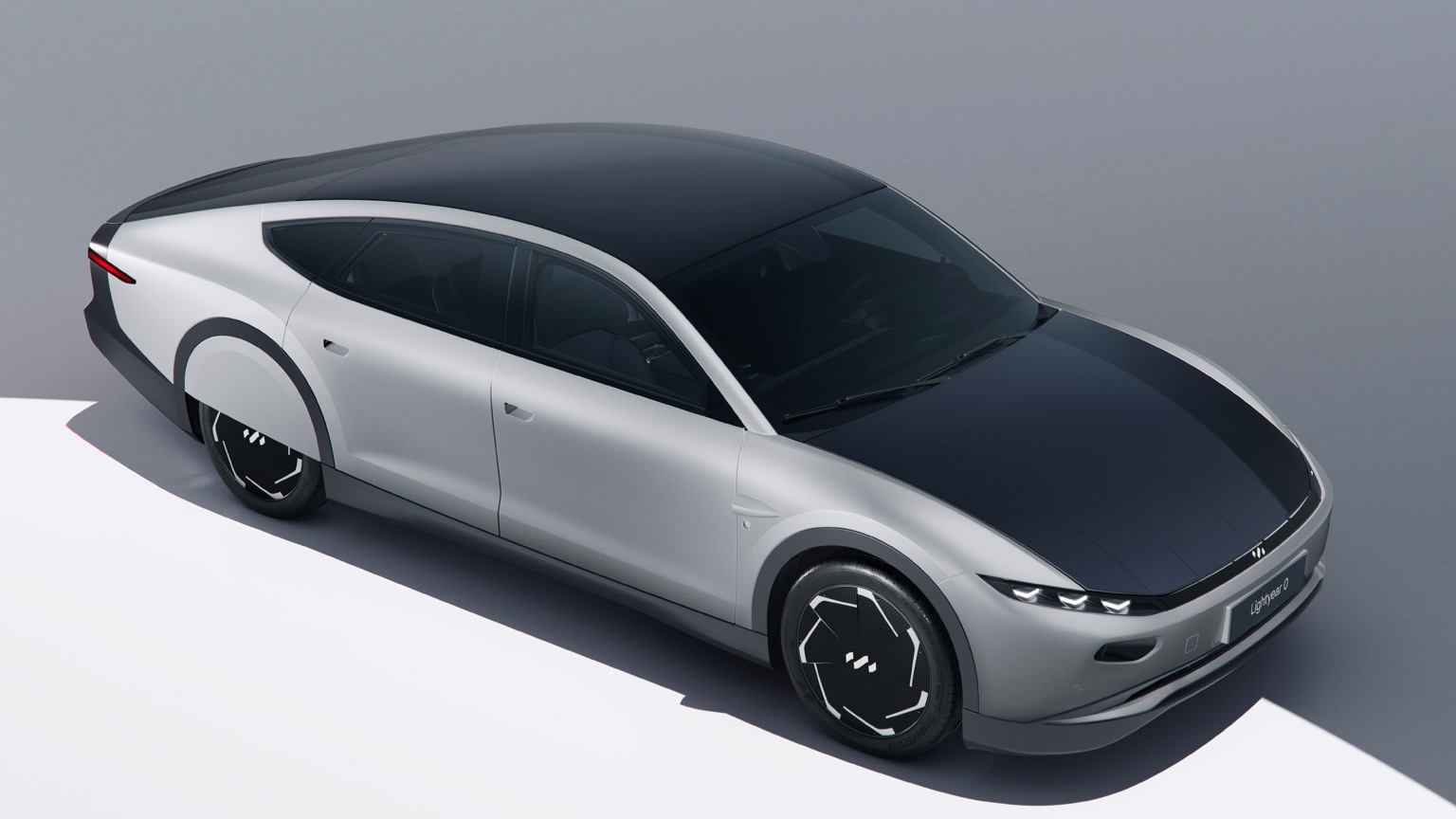
By introducing this groundbreaking technology, Lightyear sets a new industry standard, inspiring further innovation and accelerating the adoption of solar power in automotive design.
However, the Lightyear 0 is not yet widely available. The high price and financial challenges faced by the automaker led to production being halted in early 2023.
5. Nissan Leaf
Since its introduction in Japan in 2009, the Nissan Leaf has been exploring the integration of solar technology. Some models include a small solar panel mounted on the rear spoiler, which helps maintain the car’s 12V battery.
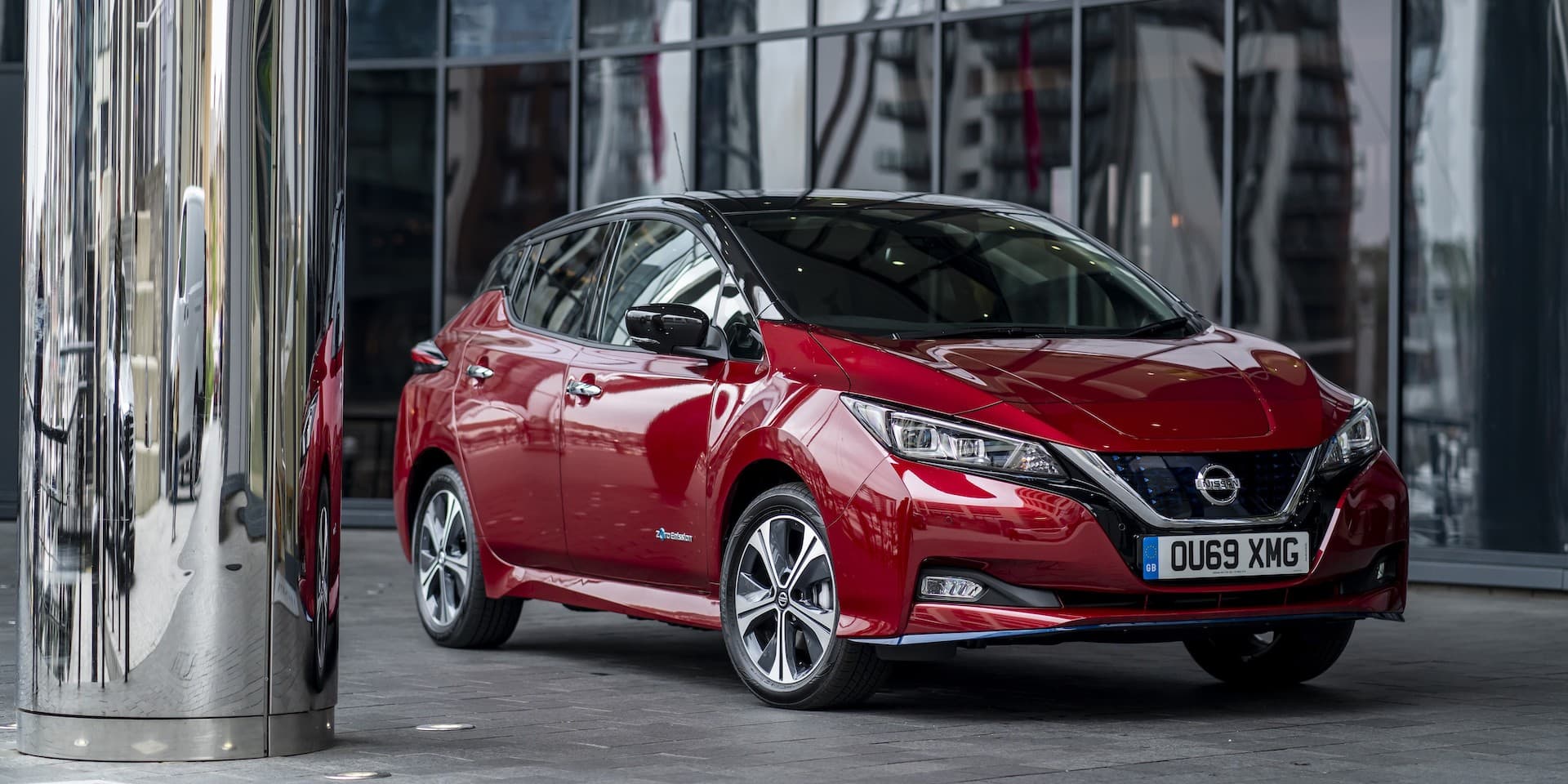
This battery powers auxiliary systems, improving the vehicle’s overall efficiency. While the Leaf’s solar panel does not significantly increase its driving range, it contributes to sustainability by leveraging renewable energy for essential functions.
Though its solar implementation is more modest compared to others on this list, the Leaf’s innovative approach demonstrates a commitment to utilizing renewable energy, paving the way for future advancements in solar technology within the industry.
6. Fisker Ocean
The Fisker Ocean is a fully electric vehicle that offers a solar roof as an option. Under optimal conditions, the Ocean’s solar panels can generate up to 1,500 miles of additional range annually, reducing the need for conventional recharging and enhancing the car’s eco-friendly appeal.
This feature makes the Ocean a modern and stylish EV while positioning it as a leader in sustainable performance.
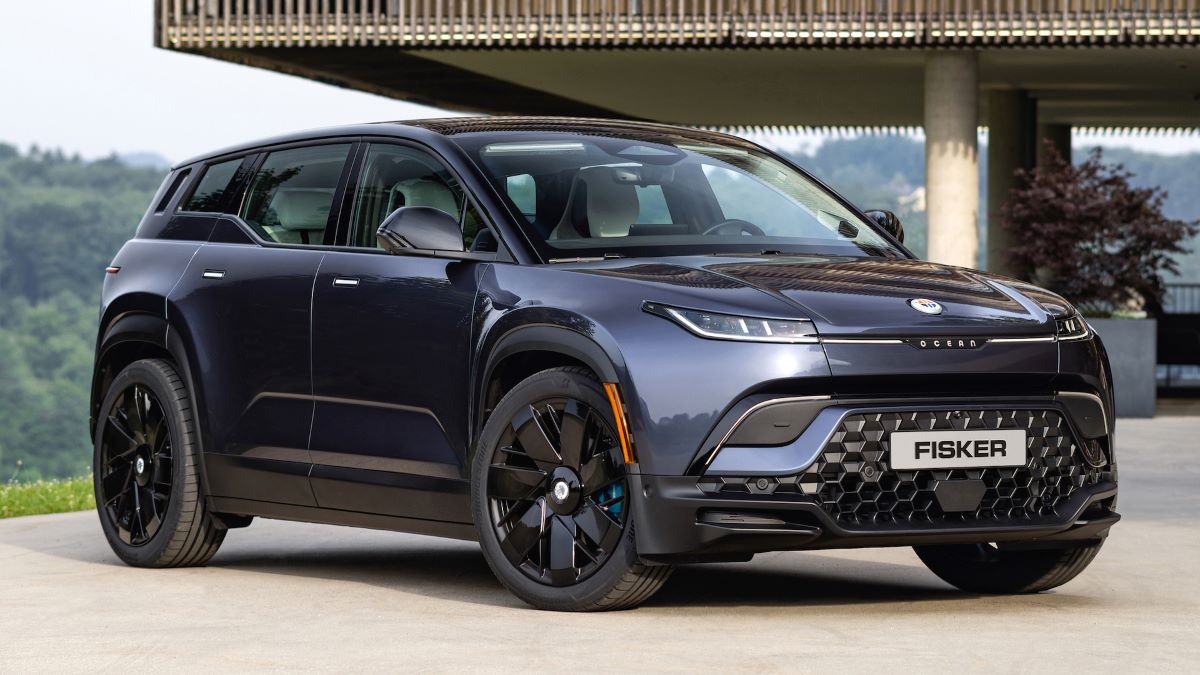
Fisker’s solar roof option reflects the brand’s dedication to improving efficiency in response to consumer demand for greener technology.
Overall, the Fisker Ocean represents a significant advancement in integrating solar-powered features into EVs, making such technology accessible not only in high-end concepts but also in everyday vehicles.
7. Toyota bZ4X
The Toyota bZ4X, a key player in Toyota’s EV lineup, features a solar roof panel as an optional enhancement. This innovative feature can generate enough energy to provide up to 1,000 miles of additional range annually.
However, the solar roof is not a standard offering and is available only on select trims.
Unlike some other vehicles on this list, the bZ4X’s solar roof contributes some power directly to the battery, although the impact depends heavily on environmental conditions and driving habits.
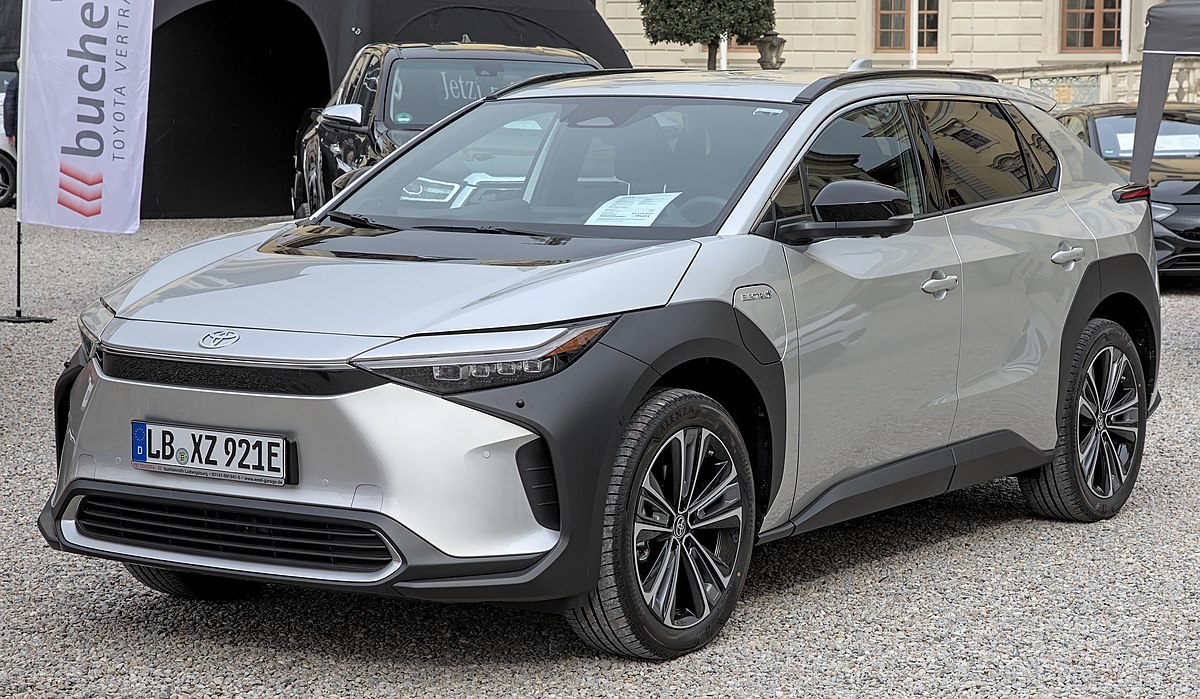
Additionally, the bZ4X employs water-cooling technology to maintain the efficiency and longevity of its 71.4 kWh battery.
This advanced system helps prevent costly issues caused by factors like prolonged exposure to high temperatures or extensive driving sessions, further solidifying its reputation as a reliable and sustainable EV.
8. Chevrolet Volt
Though discontinued, the Chevrolet Volt embraced solar technology by offering aftermarket solar panel options.
These panels allowed owners to charge the car’s 12V battery and other components, improving overall efficiency and reducing reliance on external power sources.
Similar to the Nissan Leaf, the Volt was an early adopter of solar-powered features, showcasing the innovative potential of integrating solar technology into electric and hybrid vehicles.
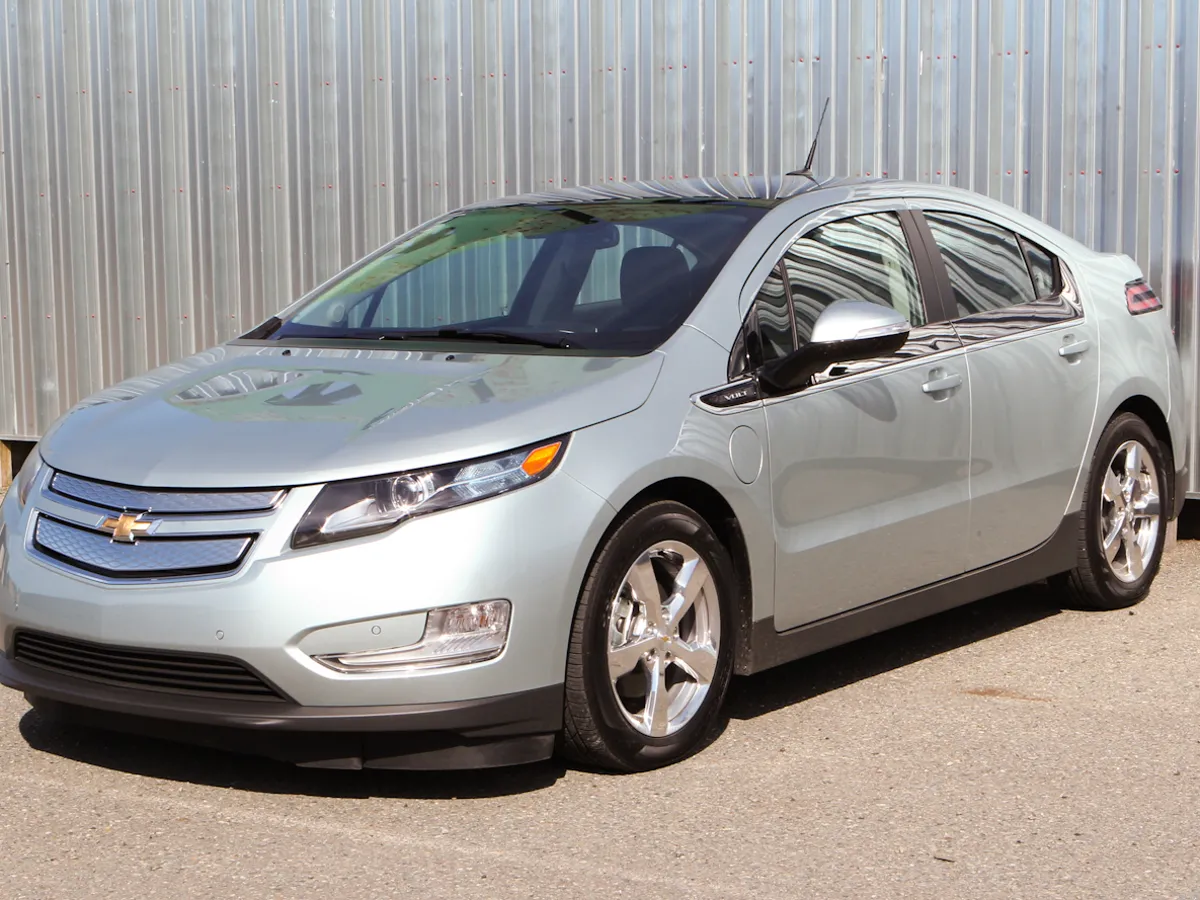
The Volt’s forward-thinking design emphasized the benefits of renewable energy in enhancing automotive performance and sustainability.
Despite the Volt’s discontinuation in 2019, its exploration of solar power remains a testament to Chevrolet’s commitment to innovation in eco-friendly transportation.
9. Sono Sion
The Sono Sion is another groundbreaking EV that incorporates solar panels across its body.
This includes solar cells embedded in areas such as the hood, fenders, roof, and rear, allowing the car to generate up to 21 miles of range per day purely from solar energy under ideal conditions.
By significantly reducing dependency on charging stations, the Sion offers an eco-friendly solution for sustainability-minded drivers.
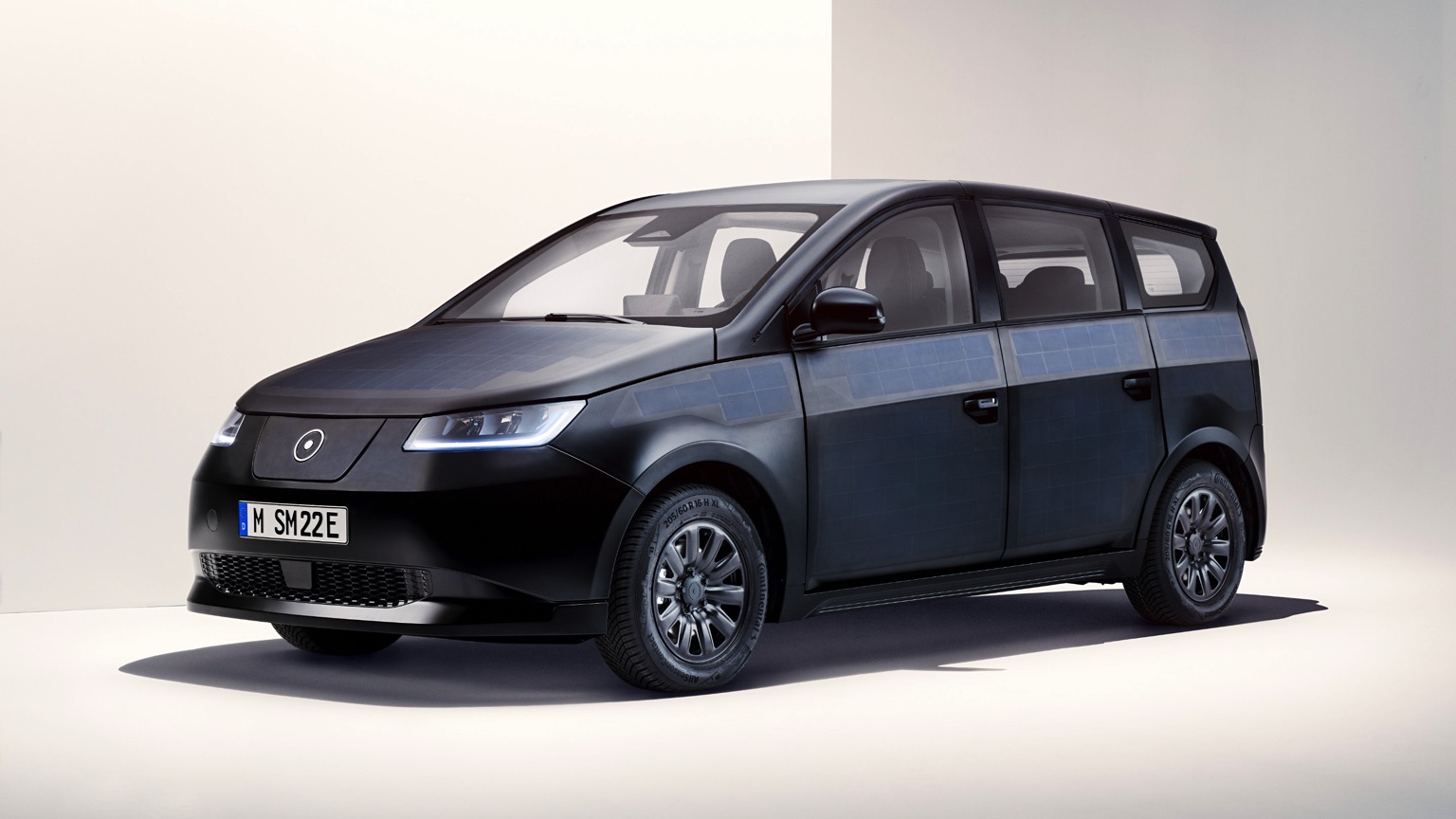
Originally announced in 2022, the Sion was set to become the world’s first mass-produced solar-powered car.
However, despite its promising design, the project was canceled in 2023 due to an unsuccessful crowdsourcing fundraiser, leaving a gap in the market for this kind of innovation.
10. Squad Solar City Car
Rounding out the list is the Squad Solar City Car, a uniquely compact solar-powered vehicle designed for two passengers.
Reminiscent of the smart cars popularized in the mid-to-late 2000s, this innovative vehicle features integrated solar panels capable of providing up to 19 miles of range per day under optimal conditions.
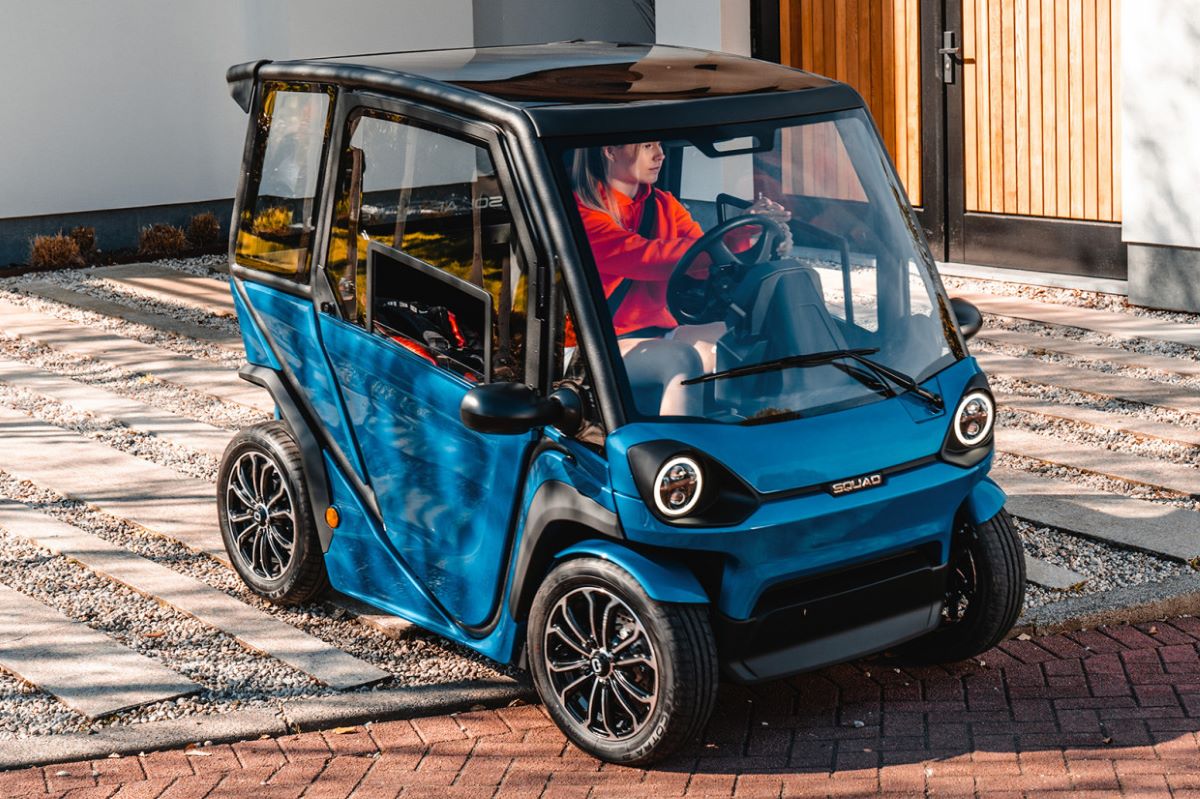
The Squad Solar City Car is an excellent choice for drivers with short commutes, offering a practical and sustainable solution for urban transportation.
With its compact and futuristic design, this car provides a glimpse into the future of eco-conscious travel while making short-distance journeys both efficient and memorable.

